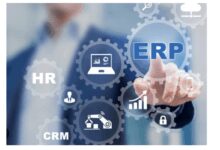Best Enterprise CRM Solutions: 7 Ultimate Power Tools for 2024
In today’s hyper-competitive business landscape, the right CRM can be your ultimate growth engine. Discover the best enterprise CRM solutions that deliver unmatched scalability, intelligence, and integration.
Why the Best Enterprise CRM Solutions Are Non-Negotiable in 2024

Enterprise-level businesses operate on a massive scale, managing thousands of customer interactions daily across multiple regions, departments, and channels. In such complex environments, relying on spreadsheets or fragmented systems is not just inefficient—it’s a strategic liability. The best enterprise CRM solutions provide a centralized, intelligent platform that aligns sales, marketing, customer service, and even finance teams around a single source of truth. These platforms don’t just store data—they analyze it, predict trends, and automate workflows to drive revenue and retention.
Scaling Operations with Centralized Data
One of the primary reasons enterprises invest in CRM systems is to eliminate data silos. When customer information is scattered across email inboxes, local drives, and disparate tools, it leads to miscommunication, missed opportunities, and poor customer experiences. The best enterprise CRM solutions unify customer data from every touchpoint—website visits, email campaigns, support tickets, social media, and in-person interactions—into a single, accessible database.
- Real-time access to customer history across departments
- Automated data capture from emails, forms, and integrations
- Role-based permissions to ensure data security and compliance
This centralization allows teams to act faster and more accurately. For example, a sales rep can instantly see that a lead recently attended a webinar and submitted a support ticket, enabling a more personalized outreach. According to Gartner, organizations using integrated CRM systems report up to 36% higher customer retention rates.
Driving Revenue with AI and Automation
Modern enterprise CRM platforms are no longer passive databases—they are active revenue engines powered by artificial intelligence. The best enterprise CRM solutions leverage machine learning to predict customer behavior, recommend next-best actions, and automate repetitive tasks like lead scoring, follow-up emails, and task assignments.
- AI-driven lead prioritization based on engagement and intent
- Predictive analytics for churn risk and upsell opportunities
- Automated workflows that reduce manual data entry by up to 70%
“CRM is no longer just about managing relationships—it’s about anticipating them.” — Forrester Research, 2023
For instance, Salesforce Einstein and Microsoft Dynamics 365 AI offer built-in intelligence that learns from user behavior and customer patterns to surface insights automatically. This level of automation not only boosts productivity but also ensures consistency in customer engagement across global teams.
Top 7 Best Enterprise CRM Solutions for 2024
Choosing the right CRM for an enterprise is a strategic decision that impacts every customer-facing function. After extensive research, benchmarking, and user feedback analysis, we’ve identified the seven most powerful, scalable, and innovative platforms that stand out in the crowded CRM market. These are not just tools—they are comprehensive ecosystems designed to grow with your business.
1. Salesforce Sales Cloud: The Undisputed Leader
Salesforce continues to dominate the enterprise CRM space with its Sales Cloud platform, offering unmatched depth in sales automation, customization, and third-party integrations. Trusted by over 150,000 companies worldwide—including Amazon, Toyota, and Unilever—Salesforce is the gold standard for scalability and innovation.
- Advanced sales forecasting with AI-powered insights
- Highly customizable objects, workflows, and approval processes
- AppExchange ecosystem with over 3,000 pre-built integrations
Salesforce’s strength lies in its flexibility. Enterprises can tailor the platform to fit complex sales cycles, multi-tiered pricing models, and global compliance requirements. Its Einstein AI capabilities provide predictive lead scoring, opportunity insights, and automated activity capture, reducing manual input and increasing win rates. Learn more at Salesforce Sales Cloud.
2. Microsoft Dynamics 365: Seamless Integration with the Microsoft Ecosystem
For organizations deeply embedded in the Microsoft ecosystem—using Outlook, Teams, Azure, and Office 365—Dynamics 365 offers a frictionless CRM experience. It’s not just a CRM; it’s a unified business application suite that blends CRM with ERP, field service, and supply chain management.
- Tight integration with Outlook, Teams, and Power BI
- AI-driven insights powered by Azure Cognitive Services
- Flexible licensing models for different team sizes and needs
Dynamics 365 excels in industries like manufacturing, healthcare, and professional services where operational workflows are tightly linked to customer relationships. Its Common Data Model ensures consistency across applications, while Power Automate enables low-code workflow automation. Explore more at Microsoft Dynamics 365.
3. HubSpot CRM: Scalable Growth for Mid-to-Large Enterprises
While HubSpot started as a favorite among SMBs, its enterprise-grade offerings have matured significantly. The HubSpot CRM Platform now supports large organizations with advanced features like custom objects, service hubs, and enterprise-level SLAs.
- Intuitive UI with drag-and-drop workflow builders
- Powerful marketing automation and content management
- Robust API for custom integrations and data sync
HubSpot’s strength is its all-in-one approach—marketing, sales, service, CMS, and operations are all under one roof. This reduces the need for multiple vendors and simplifies training and support. For enterprises focused on inbound growth, HubSpot offers unparalleled content and SEO tools. Visit HubSpot CRM for details.
best enterprise crm solutions – Best enterprise crm solutions menjadi aspek penting yang dibahas di sini.
4. Oracle CX Sales: AI-Powered Intelligence for Complex Sales
Oracle’s CX Sales platform is built for enterprises with long, complex sales cycles—especially in B2B, technology, and industrial sectors. It combines deep sales force automation with AI-driven recommendations and real-time analytics.
- Adaptive intelligence for forecasting and deal recommendations
- Embedded collaboration tools for global sales teams
- Strong compliance and data governance features
Oracle CX stands out for its ability to handle multi-tiered pricing, configurators, and quoting engines. Its AI models learn from historical deal data to suggest optimal pricing, next steps, and risk factors. It’s particularly strong in regulated industries where audit trails and data residency are critical. Learn more at Oracle CX Sales.
5. SAP Customer Experience: End-to-End Enterprise Integration
SAP’s CRM offering—now branded as SAP Customer Experience (CX)—is ideal for organizations already using SAP ERP, S/4HANA, or SAP SuccessFactors. It provides deep integration between customer data and back-end operations like finance, logistics, and HR.
- Unified customer view across sales, service, and commerce
- Real-time synchronization with SAP ERP systems
- Strong support for B2B commerce and subscription models
SAP CX is not the easiest to implement, but for enterprises committed to the SAP ecosystem, it offers unmatched data consistency and process alignment. Its C/4HANA suite includes Service Cloud, Sales Cloud, Marketing Cloud, and Commerce Cloud, all built on a common data model. Explore SAP CX at SAP Customer Experience.
6. Zoho CRM Plus: Affordable Power for Global Teams
Zoho has quietly built one of the most comprehensive CRM suites, especially for mid-sized enterprises looking for affordability without sacrificing functionality. Zoho CRM Plus bundles sales, marketing, support, and collaboration tools into a single platform.
- Zia AI for sales predictions and voice-assisted workflows
- Multi-language and multi-currency support for global teams
- Highly customizable with Zoho Creator and Deluge scripting
What sets Zoho apart is its pricing model—offering enterprise-grade features at a fraction of the cost of Salesforce or Oracle. It’s also highly extensible, with over 50 Zoho apps and 1,000 third-party integrations. For cost-conscious enterprises, Zoho is a compelling alternative. Learn more at Zoho CRM.
7. Pipedrive: Visual Sales Pipeline Excellence
While Pipedrive is often associated with SMBs, its enterprise features—such as advanced reporting, API access, and team productivity tools—make it viable for sales-focused organizations. Its visual pipeline interface is unmatched in clarity and usability.
- Drag-and-drop pipeline management
- AI-based activity recommendations
- Strong mobile app for on-the-go sales teams
Pipedrive shines in industries where sales velocity and pipeline visibility are critical—like real estate, recruitment, and tech sales. While it may lack the depth of Salesforce in service or marketing, its sales-centric design makes it a favorite among high-performance teams. Visit Pipedrive for more.
Key Features to Look for in the Best Enterprise CRM Solutions
Not all CRM platforms are created equal, especially at the enterprise level. The best enterprise CRM solutions must go beyond basic contact management and offer advanced capabilities that support large-scale operations, global teams, and complex business models.
Scalability and Performance Under Load
Enterprises generate massive amounts of data daily. A CRM must handle thousands of concurrent users, millions of records, and high-frequency transactions without performance degradation. Look for platforms with:
- Cloud-native architecture with auto-scaling
- Global data centers for low-latency access
- Proven track record with Fortune 500 companies
For example, Salesforce runs on a multi-tenant cloud infrastructure that supports over 3 billion transactions per day. This level of scalability ensures that even during peak sales periods, the system remains responsive.
Advanced Security and Compliance
Enterprise data is a prime target for cyberattacks. The best enterprise CRM solutions offer robust security features, including:
- End-to-end encryption (in transit and at rest)
- Multi-factor authentication (MFA) and single sign-on (SSO)
- Compliance with GDPR, HIPAA, CCPA, and SOC 2
Microsoft Dynamics 365, for instance, is built on the Azure cloud, which meets over 90 compliance certifications. This makes it ideal for regulated industries like healthcare and finance.
best enterprise crm solutions – Best enterprise crm solutions menjadi aspek penting yang dibahas di sini.
Customization and Extensibility
No two enterprises are alike. The CRM must be flexible enough to adapt to unique business processes, data models, and integration needs. Key capabilities include:
- Custom objects, fields, and workflows
- Low-code/no-code development tools
- Open APIs for connecting to ERP, HRIS, and legacy systems
Salesforce’s Lightning Platform allows developers to build custom applications within the CRM, while Zoho Creator enables rapid app development without coding. This extensibility ensures the CRM grows with the business.
Integration Capabilities: Why They Make or Break Enterprise CRM Success
A CRM is only as powerful as its ability to connect with other systems. The best enterprise CRM solutions offer seamless integration with email, calendar, marketing automation, ERP, and customer support platforms.
Email and Calendar Synchronization
Sales teams spend hours each week switching between CRM and email. The best enterprise CRM solutions eliminate this friction with bi-directional sync:
- Automatic logging of emails and calendar events
- One-click meeting scheduling from within the CRM
- Smart inbox features that prioritize high-value leads
HubSpot and Salesforce both offer native integration with Gmail and Outlook, ensuring no customer interaction is missed.
ERP and Financial System Integration
For accurate forecasting and billing, CRM data must flow into ERP systems like SAP, Oracle NetSuite, or Microsoft Dynamics Finance. Key integration points include:
- Syncing customer accounts and contact data
- Automating order-to-cash processes
- Real-time revenue recognition and reporting
SAP CX and Oracle CX excel here, offering native connectors that ensure data consistency across front and back offices.
Marketing and Customer Support Platforms
A complete customer journey spans marketing, sales, and service. The best enterprise CRM solutions integrate with tools like Marketo, Mailchimp, Zendesk, and ServiceNow to provide a 360-degree view.
- Lead handoff from marketing to sales with full context
- Service case creation from CRM records
- Unified customer timelines across touchpoints
For example, Salesforce Service Cloud integrates with Marketing Cloud to deliver personalized post-purchase campaigns based on support history.
Total Cost of Ownership: Beyond the Price Tag
When evaluating the best enterprise CRM solutions, the sticker price is just the beginning. The total cost of ownership (TCO) includes licensing, implementation, training, customization, and ongoing support.
Licensing Models and Hidden Fees
Most enterprise CRMs charge per user per month, but costs can escalate quickly:
- Salesforce starts at $25/user/month but can exceed $300 for Enterprise editions
- Microsoft Dynamics 365 offers tiered pricing from $65 to $225/user/month
- Zoho CRM Plus provides enterprise features at $52/user/month
Be wary of add-on costs for AI, storage, or premium support. Always request a detailed quote based on your user count and feature needs.
Implementation and Consulting Costs
Enterprise CRM implementations often require third-party consultants. Salesforce implementations can cost $100,000+ for mid-sized companies, depending on complexity. Dynamics 365 and SAP CX may require even more due to integration depth.
best enterprise crm solutions – Best enterprise crm solutions menjadi aspek penting yang dibahas di sini.
- Allocate 20-30% of software cost for implementation
- Factor in data migration, testing, and change management
- Consider phased rollouts to manage risk and budget
HubSpot and Zoho offer more self-service options, reducing reliance on consultants.
Training and Adoption Challenges
A CRM is only valuable if employees use it. Poor adoption is a leading cause of CRM failure. Invest in:
- Role-based training programs
- Ongoing support and super-user networks
- Change management strategies to drive engagement
According to Nucleus Research, companies that invest in CRM training see 3x higher ROI than those that don’t.
Future Trends Shaping the Best Enterprise CRM Solutions
The CRM landscape is evolving rapidly. The best enterprise CRM solutions are not just keeping up—they’re leading the charge in innovation.
AI and Predictive Analytics Go Mainstream
AI is no longer a nice-to-have—it’s a core CRM capability. Expect deeper integration of:
- Natural language processing for voice and chat inputs
- Predictive lead scoring with 90%+ accuracy
- Automated sentiment analysis from customer interactions
Salesforce Einstein and Microsoft Copilot are already embedding generative AI to draft emails, summarize cases, and suggest responses.
Hyper-Personalization at Scale
Customers expect personalized experiences. The best enterprise CRM solutions use real-time data to deliver tailored content, offers, and support.
- Dynamic content based on behavior and preferences
- Personalized pricing and product recommendations
- AI-driven customer journey orchestration
Oracle CX and HubSpot are investing heavily in this space, enabling marketers to create one-to-one campaigns at scale.
Mobile-First and Remote Work Enablement
With hybrid work here to stay, mobile CRM access is critical. The best enterprise CRM solutions offer:
- Full-featured mobile apps with offline access
- Mobile approvals, task management, and reporting
- Integration with mobile collaboration tools like Teams and Slack
Pipedrive and Zoho lead in mobile usability, while Salesforce and Dynamics offer robust enterprise-grade mobile security.
How to Choose the Right CRM for Your Enterprise
Selecting the best enterprise CRM solutions requires a strategic approach. Follow these steps to ensure success:
Assess Your Business Needs and Goals
Start by defining your objectives:
- Are you improving sales efficiency, enhancing customer service, or driving marketing ROI?
- What are your key pain points—data silos, poor visibility, low adoption?
- What industries and geographies do you serve?
For example, a global manufacturer may prioritize ERP integration, while a SaaS company may focus on subscription management and churn prediction.
best enterprise crm solutions – Best enterprise crm solutions menjadi aspek penting yang dibahas di sini.
Involve Stakeholders Across Departments
CRM success depends on cross-functional buy-in. Include representatives from:
- Sales: For pipeline management and forecasting needs
- Marketing: For lead nurturing and campaign tracking
- Customer Service: For case management and knowledge bases
- IT: For security, integration, and scalability requirements
Conduct workshops to gather requirements and prioritize features.
Test with Real-World Scenarios
Don’t rely on demos alone. Request a sandbox environment and test:
- Simulated sales cycles from lead to close
- Data import from your current system
- Custom workflow automation and reporting
Involve actual users in the testing process to gauge usability and adoption potential.
What are the best enterprise CRM solutions for large organizations?
The best enterprise CRM solutions for large organizations include Salesforce Sales Cloud, Microsoft Dynamics 365, Oracle CX, SAP Customer Experience, and HubSpot CRM. These platforms offer scalability, advanced automation, AI-driven insights, and deep integration capabilities tailored to complex business needs.
How much does an enterprise CRM cost?
Enterprise CRM costs vary widely. Salesforce can range from $25 to over $300 per user per month. Microsoft Dynamics 365 starts at $65/user/month. Zoho CRM Plus offers enterprise features at $52/user/month. Implementation costs can add $50,000 to $200,000 or more depending on complexity.
Which CRM is best for global enterprises?
For global enterprises, Salesforce, Microsoft Dynamics 365, and SAP CX are top choices due to multi-language support, regional data centers, compliance with international regulations, and scalable architecture for distributed teams.
Can small businesses use enterprise CRM solutions?
While enterprise CRMs are designed for large organizations, some—like HubSpot and Zoho—offer scalable plans suitable for growing mid-sized businesses. However, smaller companies may find these platforms overly complex and costly compared to SMB-focused alternatives.
How long does it take to implement an enterprise CRM?
best enterprise crm solutions – Best enterprise crm solutions menjadi aspek penting yang dibahas di sini.
Implementation timelines vary from 3 to 12 months depending on complexity, data migration needs, customization, and organizational readiness. Phased rollouts are recommended to minimize disruption and ensure user adoption.
Choosing the best enterprise CRM solutions is one of the most impactful decisions a company can make. These platforms are no longer just tools for managing contacts—they are strategic assets that drive revenue, enhance customer experiences, and unify operations across the enterprise. From Salesforce’s AI-powered intelligence to Zoho’s cost-effective scalability, the options are diverse and powerful. The key is to align your CRM choice with your business goals, involve stakeholders early, and invest in training and integration. With the right platform, your organization can achieve unprecedented levels of efficiency, insight, and growth.
Further Reading:


